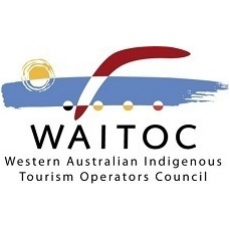
Indigenous tourism businesses in Western Australia are planning to target new customers in the US and Canada with help from two of the world’s top business schools.
MBA students from UQ Business School and The Wharton School in the US have developed a marketing strategy to promote the ‘Indigenous cultural experience’ to a North American audience.
Five students from each business school visited Perth in March to meet representatives from the industry body, the Western Australian Indigenous Tourism Operators Council (WAITOC), and learn about the tourism experiences on offer, ranging from traditional dance and dreamtime stories to contemporary history, bush tours and art galleries.
This past week WAITOC representatives flew to San Francisco where the student team will be revealing the completed marketing plan, outlining their recommendations and providing introductions to key industry partners.
The project was carried out as part of the Wharton Global Consulting Practicum (GCP), which brings together MBA students from Wharton and UQ Business School to develop a US market entry strategy for an Australasian organisation. Established in 1881, The Wharton School was the first ever collegiate business school and is recognised as one of the top three in the world. UQ Business School is Wharton’s exclusive GCP partner in Australasia.
Professor Andrew Griffiths, Dean of UQ Business School, said: “The Wharton GCP allows Australasian businesses to benefit from advice from some of the world’s top MBA talent while at the same time providing our students the chance to collaborate on international consultancy projects. We are delighted to be able to help WAITOC in its plans to promote indigenous tourism to the US market. Tourism offers a unique opportunity for Indigenous people to participate in business in a real and meaningful way, while still maintaining their cultural heritage.”
Johnny Edmonds, CEO of WAITOC, said: “Being indigenous is a blessing and a responsibility. Indigenous peoples throughout the world, being values-based and spiritually connected to place, have key contributions to make to the achievement of global harmony and tourism is a marvellous vehicle for enabling shared understanding between different peoples.”



